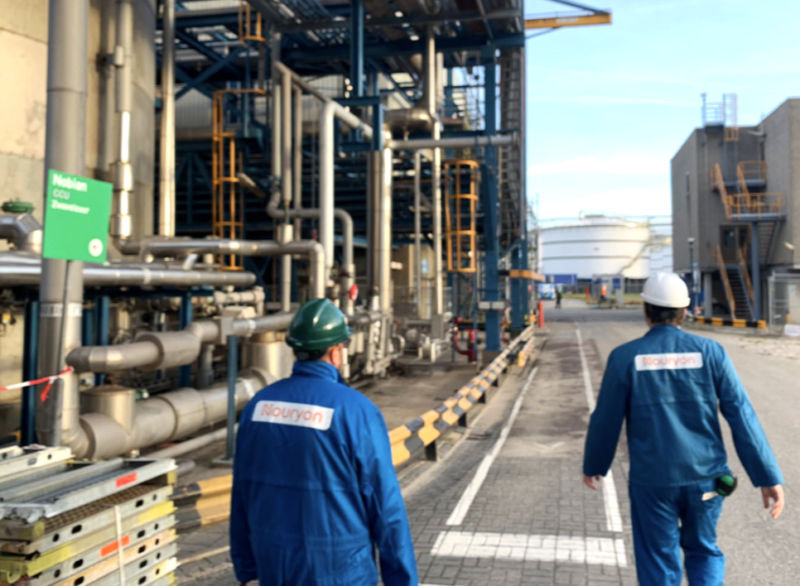Applying new technology in traditional industries sounds interesting, but is not yet common practice. For example, wireless connections are often difficult to establish in an environment containing many metal objects: the signal literally reflects in all directions. All the more reason to test with 5G: in theory, 5G should function properly where Wi-Fi or Bluetooth fail in terms of range.
As a permanent Do IoT Fieldlab partner, MCS helps make complex technology accessible. Commercial director Bas Piek looks back on one of the first experiments with MCS’ mobile 5G kit. “We were very curious how 5G would behave at a chemical plant. There are storage tanks, pipes and large obstacles everywhere. Nobian brought in a use case, to explore whether 5G could be useful for service engineers who handle malfunctions.”
MCS’ mobile 5G kit complements Do IoT Fieldlab’s fixed installations. A research team can easily conduct experiments in Delft with robots or an application on a laptop. However, in a factory or any other environment with fixed installations, you really have to operate on site. When the research started back in 2021, far less was known about 5G than is known today. Based on simulations and 5G equipment specifications, MCS experts calculated the requirements to build a stable 5G network.

Always a field test
“We started by setting up the network. Soon we discovered we already had excellent coverage with just two stations. We expected to need at least double that. This was a huge eye-opener! That taught us that you really should always perform a practical test. Theoretical models are very useful and help us map things out, but with new technology we actually learn in practice what is truly needed,” Bas states. In any case, he found the factory environment impressive. “We walked all around the factory. Engineers specifically visit areas behind the scenes, where there is machinery that controls a process. What an environment! Very ingenious how such a pipe system is designed. There has to be perfect network coverage in litterally every corner. Especially in the event of an outage. At that point a reliable and fast connection is essential.” The 5G connection met all Nobian’s needs. MCS also installed a 5G router, which could generate a Wi-Fi signal. This ensured that the combination of old technology on a new network was very useful: the team got the required application running and stable.
With creativity and inventiveness, MCS and Nobian continued working on the next step: what if a mechanic could remotely watch along via VR (Virtual Reality)? This could come in handy in case of a failure with potential danger and where time is short. Bas: “We have also been testing this. One technician is on site and another technician can watch remotely, so anywhere in the world, in real time. The two of them go through scenarios and can fix a malfunction. No fumbling with video calls where you can’t clearly distinguish the details and only have 1 hand free. With the 5G and VR combination, you can stay focused and have both hands available. Furthermore, VR can also be beneficial in training staff. For example, a trainee can “step in,” watch and learn from a rare breakdown. For large industry, this is very valuable. Especially now that we know that the required investment for a 5G network is very modest. You can build an excellent network without cramming equipment all over the place. Although of course customisation remains key: each environment and each factory is different. We still take the manufacturer’s standard values as a starting point. Then, we examine on site what the optimal network setup should be.”
